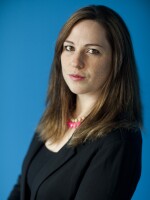SCOTT DETROW, HOST:
Pope Francis is expected to land in Rome any moment after a historic trip to Iraq, marking the first time a pope has visited the country. He spent four days there, making several symbolic and emotional visits. The trip was capped by a stadium mass last night in the northern city of Erbil.
(SOUNDBITE OF ARCHIVED RECORDING)
UNIDENTIFIED CROWD: (Praying).
DETROW: NPR's Alice Fordham covered the entire trip and joins us now. Hi, Alice.
ALICE FORDHAM, BYLINE: Hello.
DETROW: So how was Pope Francis received last night in Erbil?
FORDHAM: There was a lot of joyous energy there, from the moment the pope first flew over the stadium in a helicopter to the drive around he did in an open-top vehicle, waving at people as he passed. And I think, speaking to people, they were quite overwhelmed that the pope had visited Iraq.
SAASANE HASAN: (Non-English language spoken).
FORDHAM: So this man I spoke to, Saasane Hasan (ph), said he never expected the pope would visit. And he was more moved than he thought he would be to be there at that moment. And he said he thought Francis was a brave man to come to Iraq despite safety concerns that deter other people. And a lot of people in that stadium have been through hard times. Many Christians were displaced here to Erbil when militants from ISIS took the nearby city of Mosul and Christian villages. And the pope in his homily spoke to their future.
(SOUNDBITE OF ARCHIVED RECORDING)
POPE FRANCIS: (Non-English language spoken).
FORDHAM: He said, "the Lord promises, through the power of resurrection, that he can raise us and our communities from the ruins left by injustice, division and hatred." And he finished by saying he could see the church in Iraq is alive, which made the crowd cheer. I will mention, this event was outside with some social distancing. A lot of the things he did were inside and quite crowded, which did worry public health experts.
DETROW: Yeah, hard not to dwell on some of the pictures of these crowds, where so many people were not wearing masks during this trip. But let's talk about one other visit, when he went to Mosul, which is a city many Americans may recognize because of the war, the central role it played in ISIS' rise and fall. The images of that visit, Francis, surrounded by rubble, were so moving. Walk us through the significance of this aspect of the trip.
FORDHAM: It was highly symbolic. Mosul has had a Christian community, really, since the earliest time of the faith. And before ISIS took the city in 2014, there was a small but significant Christian community, priests and churches and so on. As the city was taken back from ISIS, very few Christian families have returned. And much of Mosul is still in bad shape. So as you say, to see the pope standing in front of a cross made from charred wood taken from churches burned by ISIS was a big moment. And he stressed Iraq's rich religious diversity there, as he has on other occasions. And many priests and leaders hope that will encourage Christians to stay in Iraq. The community here has been dwindling as people seek to live elsewhere.
DETROW: You know, the pope is so conscious of the signals he sends and where he goes, who he meets with. What was his goal in sitting down with so many Muslim leaders during this trip?
FORDHAM: I think he wanted to send a message of religious tolerance. Outreach to Muslim leaders has been a big part of other trips as well. And I think the standout element of that was probably the visit he paid on Saturday to the Shiite Muslim cleric, the Grand Ayatollah Ali al-Sistani, a reclusive, austere man who very unusually released a short video of that encounter and a detailed statement saying they spoke of the importance of religious leaders in world peace.
DETROW: That's NPR's Alice Fordham in Erbil. Alice, thanks so much.
FORDHAM: Thanks for having me.
(SOUNDBITE OF AK AND LIAM THOMAS' "PEACE OF MIND") Transcript provided by NPR, Copyright NPR.






